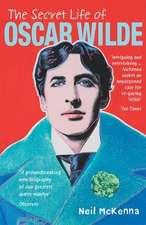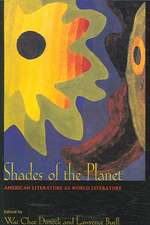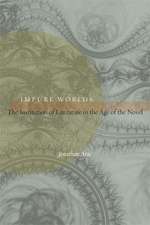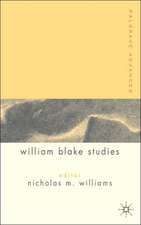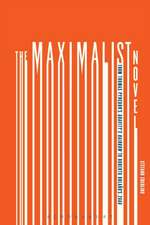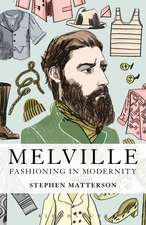The Bloomsbury Introduction to Popular Fiction
Editat de Dr Christine Berberichen Limba Engleză Hardback – 17 dec 2014
| Toate formatele și edițiile | Preț | Express |
|---|---|---|
| Paperback (1) | 227.72 lei 3-5 săpt. | |
| Bloomsbury Publishing – 17 dec 2014 | 227.72 lei 3-5 săpt. | |
| Hardback (1) | 834.70 lei 6-8 săpt. | |
| Bloomsbury Publishing – 17 dec 2014 | 834.70 lei 6-8 săpt. |
Preț: 834.70 lei
Preț vechi: 1133.21 lei
-26% Nou
Puncte Express: 1252
Preț estimativ în valută:
159.71€ • 166.77$ • 131.89£
159.71€ • 166.77$ • 131.89£
Carte tipărită la comandă
Livrare economică 15-29 aprilie
Preluare comenzi: 021 569.72.76
Specificații
ISBN-13: 9781441172013
ISBN-10: 1441172017
Pagini: 344
Dimensiuni: 156 x 234 x 21 mm
Greutate: 0.66 kg
Editura: Bloomsbury Publishing
Colecția Bloomsbury Academic
Locul publicării:London, United Kingdom
ISBN-10: 1441172017
Pagini: 344
Dimensiuni: 156 x 234 x 21 mm
Greutate: 0.66 kg
Editura: Bloomsbury Publishing
Colecția Bloomsbury Academic
Locul publicării:London, United Kingdom
Caracteristici
Critically surveys the major genres, from science-fiction and crime to children's literature and graphic novels.
Notă biografică
Christine Berberich is Senior Lecturer in English Literature at the University of Portsmouth, UK. Her previous publications include The Image of the English Gentleman in Twentieth Century Literature (2007).
Cuprins
Acknowledgements Contributors' Details Christine Berberich, 'Introduction: The Popular / Literature versus literature Part I: History I.i.: Christopher Pittard, 'The Victorian Context: Serialization, Circulation, Genres' I.ii.: Christine Berberich, 'Twentieth-Century Popular: History, Theory, and Context' Part II: Genres II.i.: Maryan Wherry, 'More than a Love Story: The Complexities Of the Popular Romance' II.ii.: Alice Ferrebe, '"The Lads' Own Paper": Male Confessional Literature and the Legacy of Adventure II.iii.: Andy Sawyer, 'Science Fiction: The Sense of Wonder' II.iv.: Stefania Ciocia, 'Rules are Meant to Be Broken: Twentieth- and Twenty-First Century Crime Writing' II.v.: Gina Wisker, 'Disturbance, Disorder, Destruction, Disease: Horror Fiction Today' II.vi.: Lena Steveker, 'Alternative Worlds: Popular Fiction (not only) for Children' II.vii.: Monica Germanà, 'The Coming of Age of Graphic Narratives' Part III: Case Studies III.i.: Ben Clarke, 'H.G. Wells, Élitism, and Popular Fiction' III.ii.: Patrick Parrinder, 'John Buchan and the Spy Thriller' III.iii.: Juan F. Elices, 'Manipulating Popularity: A Case Study of Ian Fleming's James Bond Series III.iv.: Joanne Bishton, 'Subverting the Romance: the Fiction of Sarah Waters' III.v.: Bran Nicol, 'The Hard-Boiled Detective: Dashiell Hammett' III.vi.: Petra Rau, 'Violent Pleasures: War as Entertainment' III.vii.: Neil Campbell, 'Popular Vampires: The Twilight Effect' III.viii.: Ben Dew, 'Rewriting Popular Classics as Popular Fiction: Jane Austen, Zombies, Sex and Vampires' III.ix.: Carl Tighe, 'Edu-Biz: The Worlds of Learning and Writing - A Writer's Perspective' Christine Berberich, 'Afterword: The Future of the Popular' Index
Recenzii
The book as a whole brings a refreshing depth, clarity and academic rigour to a field that has long been left languishing.
Does exactly what it says on the cover: sold introductions to the multivariate literary forms in popular literature and reading. Andy Sawyer on science fiction and Petra Rau on the violent pleasures of war as entertaining are particularly strong, as are the chapters on H. G. Wells and the rewriting of Jane Austen for devotees of vampires, zombies and the erotic
[With] 18 essays, from a variety of academic authors, [this book] constitut[es] an excellent vade mecum to popular literature.
This cornucopia of exciting essays on popular fiction from the Victorians to the present, by both veteran scholars and exciting new voices, boldly takes popular fiction beyond encrusted cliches and into the ferment of twenty-first century ideas. From Tom Brown's Schooldays to Twilight, from H. G. Wells; to Stieg Larsson, The Bloomsbury Introduction to Popular Fiction provides an accessible, fresh, and above all contemporary look at a part of literature that, increasingly, we find we cannot do without.
The chapters gathered in this collection provide a comprehensive and wide-ranging introduction to the field of popular fiction. The chapters on crime fiction, children's literature, utopian texts and science fiction, the spy thriller, horror and gothic literature and graphic narratives offer a thorough and in-depth overview of the various genres and their genealogies. Critical approaches to the genre and its various subgenres engage with contemporary theoretical discourses in order to show the complex aspects that have impacted upon the development of popular fiction and its reception by readers and academia. The volume presents an important contribution to the study of this literary field and will provide an informative and valuable tool for the teaching of undergraduate as well as postgraduate students.
This wonderful collection takes popular fiction seriously - at the same time it celebrates what makes it so much fun to read. Berberich includes an impressive array of scholars, who persuasively argue that the traditional distinctions between 'high' and 'low' culture and literary and popular fiction ignore the ways in which both forms speak to us about who we are and the society in which we live. In our increasingly digital world, 'popular' culture surrounds us, and it will continue to take on new forms of expression, challenging and reshaping our ideas about what constitutes art and literature. This collection engages older and newer forms of the popular and makes an important contribution to fields of literary and cultural studies, and it is also a truly pleasurable read.
Does exactly what it says on the cover: sold introductions to the multivariate literary forms in popular literature and reading. Andy Sawyer on science fiction and Petra Rau on the violent pleasures of war as entertaining are particularly strong, as are the chapters on H. G. Wells and the rewriting of Jane Austen for devotees of vampires, zombies and the erotic
[With] 18 essays, from a variety of academic authors, [this book] constitut[es] an excellent vade mecum to popular literature.
This cornucopia of exciting essays on popular fiction from the Victorians to the present, by both veteran scholars and exciting new voices, boldly takes popular fiction beyond encrusted cliches and into the ferment of twenty-first century ideas. From Tom Brown's Schooldays to Twilight, from H. G. Wells; to Stieg Larsson, The Bloomsbury Introduction to Popular Fiction provides an accessible, fresh, and above all contemporary look at a part of literature that, increasingly, we find we cannot do without.
The chapters gathered in this collection provide a comprehensive and wide-ranging introduction to the field of popular fiction. The chapters on crime fiction, children's literature, utopian texts and science fiction, the spy thriller, horror and gothic literature and graphic narratives offer a thorough and in-depth overview of the various genres and their genealogies. Critical approaches to the genre and its various subgenres engage with contemporary theoretical discourses in order to show the complex aspects that have impacted upon the development of popular fiction and its reception by readers and academia. The volume presents an important contribution to the study of this literary field and will provide an informative and valuable tool for the teaching of undergraduate as well as postgraduate students.
This wonderful collection takes popular fiction seriously - at the same time it celebrates what makes it so much fun to read. Berberich includes an impressive array of scholars, who persuasively argue that the traditional distinctions between 'high' and 'low' culture and literary and popular fiction ignore the ways in which both forms speak to us about who we are and the society in which we live. In our increasingly digital world, 'popular' culture surrounds us, and it will continue to take on new forms of expression, challenging and reshaping our ideas about what constitutes art and literature. This collection engages older and newer forms of the popular and makes an important contribution to fields of literary and cultural studies, and it is also a truly pleasurable read.


